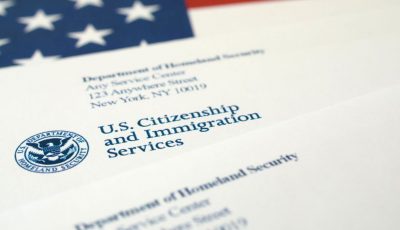Couple sues for lack of action on pending petition
A couple is suing officials of the U.S. Department of Homeland Security and U.S. Citizenship and Naturalization Services for allegedly not acting on their pending petition for a green card.
The petition has allegedly been pending for 13 months now.
Robert Lee Hale Jr. and Suinan Zhong have a pending I-130 petition for alien relative and I-485 application for adjustment of status to get a green card.
The couple, through counsel Samuel I. Mok, is suing DHS Secretary John Kelly, USCIS National Benefits Center director Robert M. Cowan, USCIS district director David Gulick, acting USCIS director James McCamant, and U.S. Attorney General Jefferson Sessions.
Mok asked the U.S. District Court for the NMI to direct USCIS to issue a decision on the couple’s pending petition and application and for Kelly, Cowan, Gulick, McCamant, and Sessions to decide on the merits of the petition and application.
The couple is also seeking attorney’s fees and court costs.
Hale, a U.S. citizen, and Zhong, a Chinese national, were married on Saipan on March 9, 2015.
On July 21, 2015, Hale filed with USCIS an I-130 petition on behalf of his wife, seeking to have her classified as an immediate relative of a U.S. citizen.
That same day, Zhong filed with USCIS an I-485 application for adjustment of status to a permanent resident.
On June 6, 2016, the couple appeared for an adjustment of status interview at the USCIS Office on Saipan.
At the end of that interview, Hale and Zhong were issued a request for additional information by the USCIS officer.
That required Zhong to resubmit her I-693 medical examination because her medical provider had inadvertently filled out an I-693 form that was outdated.
On June 8, 2016, two days after being issued the request for additional information, the couple hand-delivered the I-693 medical examination signed by Zhong’s medical provider on an updated form.
Since then, Mok said, the couple has not received any further communications from USCIS about their pending I-130 petition and I-485 application.
During this time, the couple allegedly made many InfoPass examinations and made several phone calls to the National Customer Service Center, seeking to find out the reason for the delay in the adjudication of their case.
Petitioners allegedly failed to receive any helpful information from these inquiries other than being told their case was pending.
On Feb. 2, 2017, petitioners sent a letter to USCIS inquiring on the status of their pending case.
To date, Mok said, petitioners have not received a response.
“The 13-month delay at issue is inherently unreasonable and thus far inexplicable,” Mok said.
The lawyer said issuance of a decision after an adjustment of status interview usually takes two to three weeks.
After the interview, Mok said, the USCIS officer does a final review of the file and make a recommendation to the USCIS field director as to whether the application for adjustment of status should be granted or denied.
If granted, he said, the applicant will receive permanent residence (also known as a green card).
If denied, the lawyer said, USCIS will issue a notice of denial or a notice of an intent to deny.
Mok said if further information is required then USCIS will issue a request for additional information.
“It is highly unusual and unreasonable for the USCIS to conduct an adjustment of status interview then wait over a year without making any decision whatsoever,” Mok said.
By doing so, he said, the USCIS has placed the petitioners in administrative “limbo” that has caused them unnecessary anxiety and stress.
Mok said the couple’s failure to receive a decision on their pending I-130 petition and I-485 application are directly and solely attributable to the neglect and/or wrongful indifference of the USCIS.
Mok said the failure of the USCIS to make a decision is causing ongoing hardship to the couple by preventing Zhong from adjusting her status to that of a permanent resident.
MD: A couple is suing USDHS and USCIS for not acting on their pending petition for alien relative



























